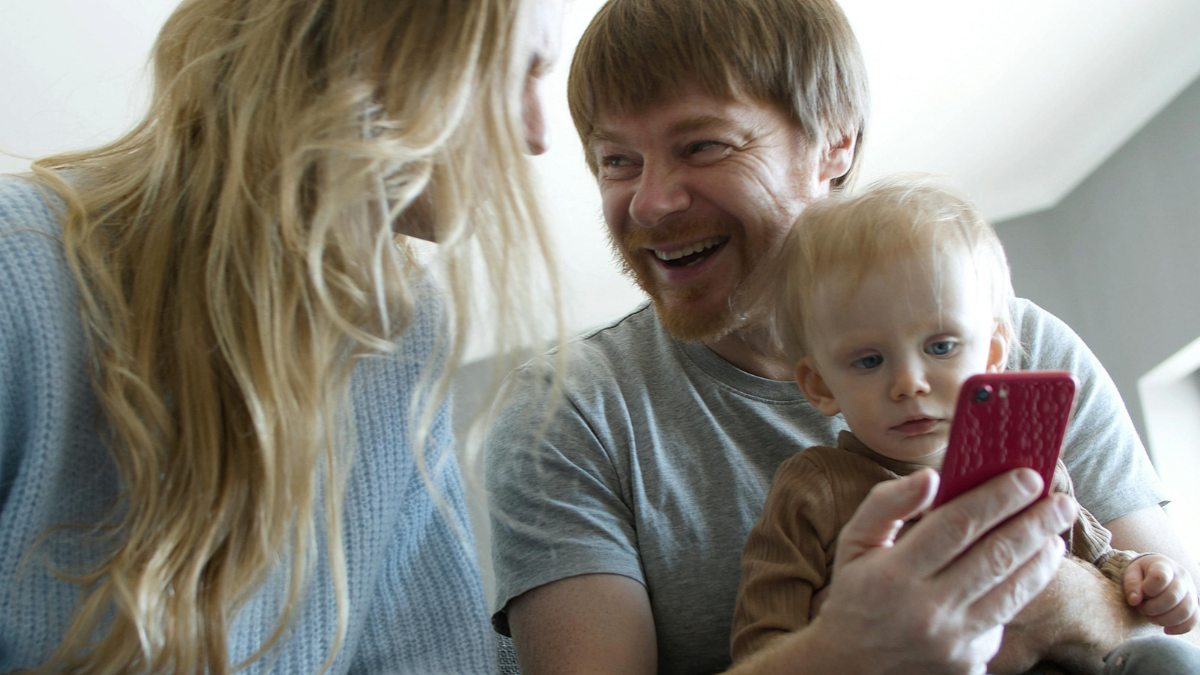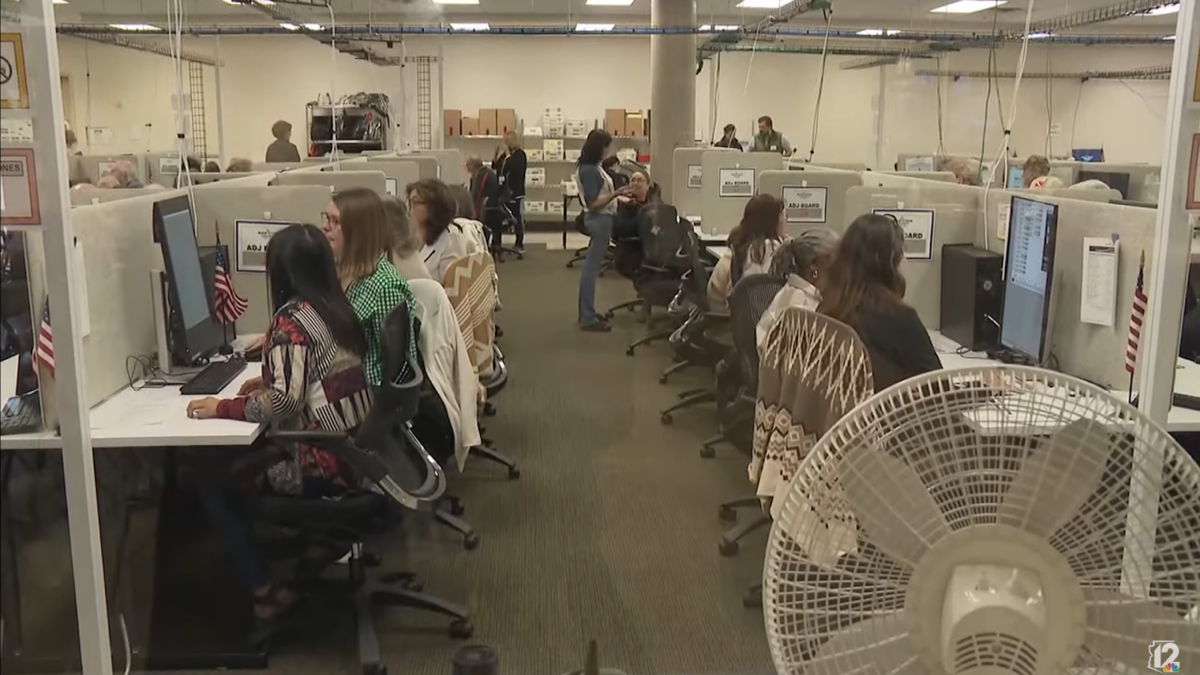
I do not watch “This is Us.” The initial buzz suggested that the show was a less-maudlin version of a Lifetime Television series, and if sentimentality were an allergy, I’d carry around an Epi-pen. So when a show is lauded for its sentiments, I don’t make space for it in my limited video-watching lineup.
Now I have a specific example to cite: apparently the last episode had a sob-worthy scene.
Usually the calm, cool, and collected one, we see Rebecca completely lose it when Jack accuses her of thinking that he and the kids haven’t “fulfilled” her.
“I have no life!” Rebecca screams at her husband. “I have zero life, Jack. I am a housewife to three teenagers who do not need me anymore, and I have a husband who waltzes in every night at 8 o’clock, if I’m lucky, goes to the kitchen, recaps his day for me and then passes out upstairs at 10 o’ clock. I have no life. I am a freaking ghost.”
I felt every bit of Rebecca’s deepest frustration, left raw and exposed with her words, because oh my gosh, could it be any more real?
Her fear that she has disappeared as a person in the roles of mothering and being a wife, the fear that she sacrificed everything she loved about herself for kids; kids that — let’s be honest, she wasn’t even sure she wanted early on in her relationship — is the same fear so many women understand.
Betty Friedan Addressed A Yearning For Visibility
While I may not watch emotional appeals for entertainment, I certainly understand this particular emotion: the frustration of a wife and mother struggling to stay visible.
It is the same problem as the one with no name from the early 60’s, when post-war innovation turned domestic housekeeping from a seven-days-a-week, back-breaking job into a part-time labor and management position. Between labor-saving devices and the fact that by ’63, half of the Boomer babies were at least in grade school, it is no surprise that women were wondering what to do next. Some despaired that they were now invisible wives and mothers, whose intense work was largely finished—or at least not regarded as essential anymore.
In 1963, Betty Friedan named that problem with no name “the feminine mystique.” At hers and other feminist leaders’ urging, women surged into professions.
Compared with past American women, we are better educated, better paid, and better represented in government and upper management. We have ever so many more options than the June Cleaver generation did.
Yet, here we are, 50 years later, and stay-at-home moms—today’s version of a housewife—share their mothers’ frustration. Usually when someone notices this fact, she trots it out to blame the patriarchy, to list all the ways male dominated society holds women back—still. I won’t pretend that some of those holdbacks don’t exist. They do. That they are often women-on-women offenses, I will address another day. Today, I want to consider the personal holdbacks.
We Are What We Choose To Be
For reasons partially rooted in the Second Wave begun by Friedan, American motherhood became a kid-focused rat race. After the furor of the sixties settled, women had to figure out what to do about motherhood. Shun it? Delay it? Embrace it? Attempt it with or without a partner? The choices were—are—many.
With women’s newfound professional options, mothers who opted out of the workforce to raise their children had to turn motherhood into a job worthy of “wasting” their education. And that they did. By the early 90’s, the Mommy Wars had been named. Mothers at home touted all the things only a mother could do. Elite mothers at work pushed for all the things only a double income could afford. Breastfeeding became a battlefield. Schedules full of enriching classes taught by an assortment of credentialed experts became standard.
Helicopter parenting? It is no coincidence it started surging then. The intensive competitive mothering of the Mommy Wars was the perfect growth medium for what had been an outlier style of mothering.
“Stay-at-home mom” became the preferred term for opt-out mothers everywhere precisely because it focused on the children. “Housewife” was too focused on homes and husbands. We were defensive enough rationalizing wasting our education for our children—we weren’t even going to attempt rationalizing that for our marriages. We are women. We’ve got this not only without men, but in spite of them.
(For one glorious example of the attitude, see the role reversal BBC interruption spoof.)
What Happened When We Became ‘Stay-At-Home Moms’
Everything now revolved around our children. When clearing every obstacle from our children’s lives and devoting ourselves to their education, what else do we do? Oh, there’s the advice to take some “me time.” You know, get a mani/pedi or go to a movie alone. Get away from the kiddos to recharge your batteries. I do not object to taking R&R now and then. But while it is a good thing, it does not create an identity.
We were well-intentioned. But whether we ended up raising children who failed to launch, or those children had to finally throw us off in a bid for independence, we often end up feeling like none of our sacrifices matter. We have to keep tending to the grown but not flown, or we find ourselves cast out and alone.
With such single-minded devotion to the one job of motherhood, of course mothers at home feel invisible outside of that role. It is the only thing we do.
We Have Opportunities In And Beyond Motherhood
For years, I’ve wondered what would have happened if the seeking women of the 60’s had taken advice from someone other than Friedan. There was a book released a year or so after “Feminine Mystique,” one actually about love. “Advice to a Young Wife from an Old Mistress” addressed the invisibility problem specifically:
We love most those who make us fulfill whatever greatness lies in us, not those who induce us to resign it. Remember how it was at first, how you went around pouring out, and refill your reservoir from the same springs as before you met, for that is what brought love to your door … . Study something, learn something, risk more than you think you can, care something, become something–if in truth you wish to be loved.
There is no reason in this modern era that a woman, even one at home, cannot do this. Our educations and remote office innovations give us bountiful options to study, learn, risk, care, and become. But many of us don’t—because, well, Johnny has a basketball tournament this week, and Susie has soccer. Next week it will be something else.
Motherhood Should Not Be Our Whole Life
Neither evidence nor the voice of experience will sway us from our intensive mothering. An associate dean of Stanford writes a book on how herding our kids in a higher education rat race stunts their growth, and yet we still persist. An elementary school mother’s group hosts a panel of high school and empty nest mothers, who tell their younger counterparts that they regret running their children’s lives so single-mindedly—that they regret it for the children, themselves, and their marriages—and yet we still persist.
I think much of the problem is that we bought into the Second Wave idea that the only valued work is paid work. Thus, we do not bother with any non-mother doings in our motherhood days. Consultants for once-professional mothers who are looking to get back into the workforce often have to counsel women to include big volunteer jobs in their opt-out days.
A few days ago, Amal Clooney gave an excellent speech on ISIS, and some commented on her pregnancy fashion. The subtitle of a piece calling out these nods to motherhood? “[Motherhood] is more like an unpaid volunteer position you commit to for life.” Note the stress by redundancy “unpaid volunteer.”
Your Work Is Important Without a Paycheck
The narrative is this: if you don’t earn a paycheck—complete with Social Security and federal income tax withholding—then what you do is worthless. We secretly believe we are wasting our educations, and that we will be invisible in motherhood.
Because of that fear, many of us throw ourselves into motherhood with abandon and much fanfare. It comforts us to believe that our children will forever need us for every moment of every day. In the early days, it is even easy to believe this. Mothers of 4 or 14 month olds can hardly conceive of a time when they might be invisible to their children. But even children get older.
For years, I have wondered if an either/or view of motherhood and professional success constitutes a subtle post-second wave, a feminist strategy to preserve elite power. Encourage the idea that motherhood is all-consuming, and women will either farm the job out and stay in the workforce, or will be too busy with the daily details of motherhood to interfere. It’s a win-win for the 1 percent feminists. It doesn’t seem to have worked out so well for everyone else.









